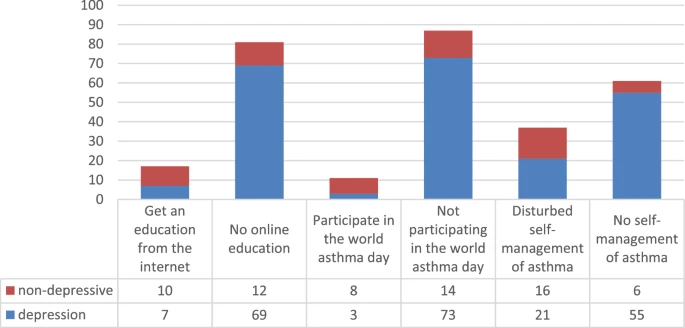A blog that publishes updates and open access scientific papers about allergy, asthma and immunology. Editor: Juan Carlos Ivancevich, MD. Specialist in Allergy & Immunology
January 17, 2023
Cutaneous manifestations of COVID-19 and COVID-19 vaccination
January 11, 2023
Analysis of factors influencing the determination of indications for allergen-specific immunotherapy
REVIEW ARTICLE
Abstract
Objective: To develop a questionnaire and a scoring system for evaluating physicians’ knowledge of allergen immunotherapy (AIT).
Methods: Questionnaire was designed using the Questionnaire Star tool. A total of 1024 physicians were assessed, and based on the score divided into accurate judgment and inaccurate judgment groups. Statistical analysis was done, and counting data were expressed as frequencies and percentage values. Chi-square test and multi-factor logistic analysis were used to determine influencing factors on the indications for AIT.
Changes in type 2 innate lymphoid cells and serum cytokines in sublingual immunotherapy in pediatric patients with allergic rhinitis
Abstract
Background
Type 2 innate lymphoid cells (ILC2) are upregulated in childhood allergic rhinitis (AR) and are associated with AR severity. This study aimed to investigate changes in the ILC2 milieu in pediatric patients with AR after sublingual immunotherapy (SLIT).
January 5, 2023
Clinical Associations of Mucus Plugging in Moderate to Severe Asthma
Background
Objective
January 3, 2023
Immunomodulatory effects of probiotic supplementation in patients with asthma: a randomized, double-blind, placebo-controlled trial
Research - Open Access
Sina Sadrifar, Tannaz Abbasi-Dokht, Sarvenaz Forouzandeh, Farhad Malek, Bahman Yousefi, Amir Salek Farrokhi, Jafar Karami & Rasoul Baharlou
Allergy, Asthma & Clinical Immunology volume 19, Article number: 1 (2023)
Abstract
Background
Asthma is considered to be a chronic inflammatory disorder of the airways. Probiotics are living microorganisms that are found in the human gut and have protective effects against a wide range of diseases such as allergies. The aim of this study was to investigate the improvement of clinical asthma symptoms and changes in the expression pattern of selective microRNAs in patients with asthma and the changes in IL-4 and IFN-γ plasma levels after receiving probiotics.
December 31, 2022
Physician education on World Asthma Day aids in disease management during the COVID-19
- Short Report
- Open Access
Allergy, Asthma & Clinical Immunology volume 18, Article number: 113 (2022)
Abstract
Anxiety and depression can negatively affect the management of asthma. The study aimed to assess the psychosocial effects of asthma patients during COVID-19 and analyze potential risk factors and interventions.
In June 2022, the “Questionnaire Star” electronic questionnaire system was used to collect data. A total of 98 asthma patients from the affiliated hospital of the medical school of Ningbo University were invited to complete the questionnaires. According to our study, the prevalence of symptoms of anxiety and depression in the asthma patients in the institution was 91.8 and 77.6%, respectively.December 26, 2022
Nutritional Management of Children with Food Allergies
Current Treatment Options in Allergy volume 9, pages375–393 (2022)
Abstract
Purpose of the Review
The purpose of the review is to review the evidence for the nutritional management of paediatric food allergy and provide a practical approach for healthcare professionals working in this area.
Immunoglobulin replacement therapy in patients with immunodeficiencies: impact of infusion method on patient-reported outcomes
- Research
- Open Access
Allergy, Asthma & Clinical Immunology volume 18, Article number: 110 (2022)
Abstract
Background
Understanding the impact of different immunoglobulin (Ig) infusion methods (intravenous [IVIg] and subcutaneous [SCIg]) upon treatment experience can potentially facilitate optimization of patient outcomes. Here, the perspective of patients with primary and secondary immunodeficiency diseases (PID and SID, respectively) receiving IVIg and SCIg was evaluated, in terms of treatment satisfaction, accounting for treatment history, using Association des Patients Immunodéficients du Québec (APIQ) survey data.







